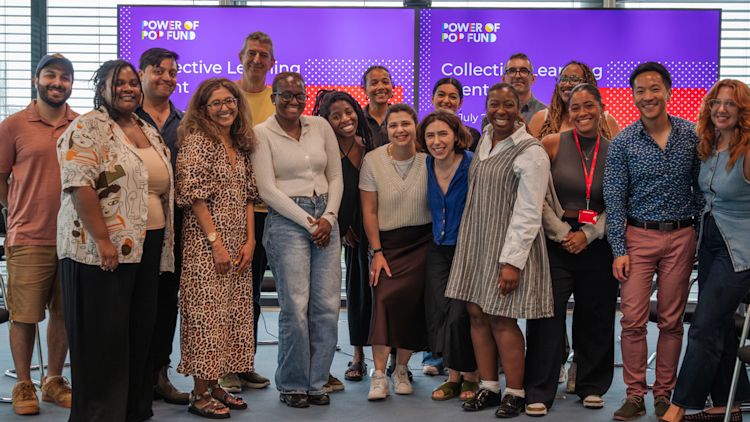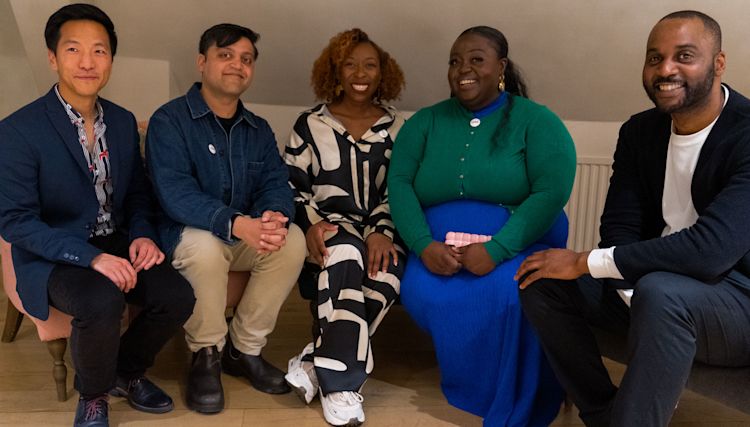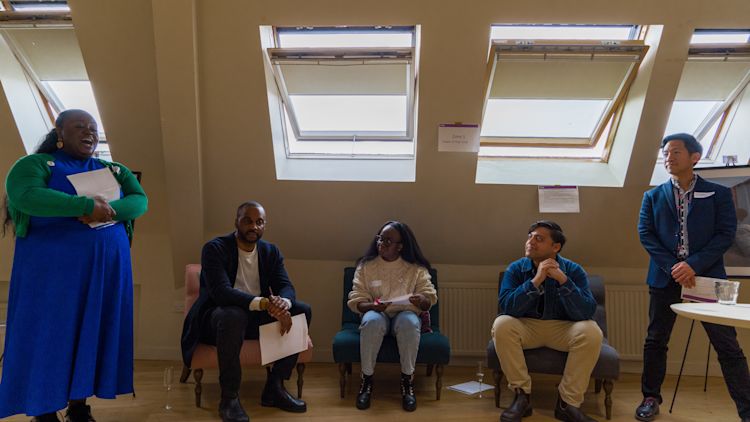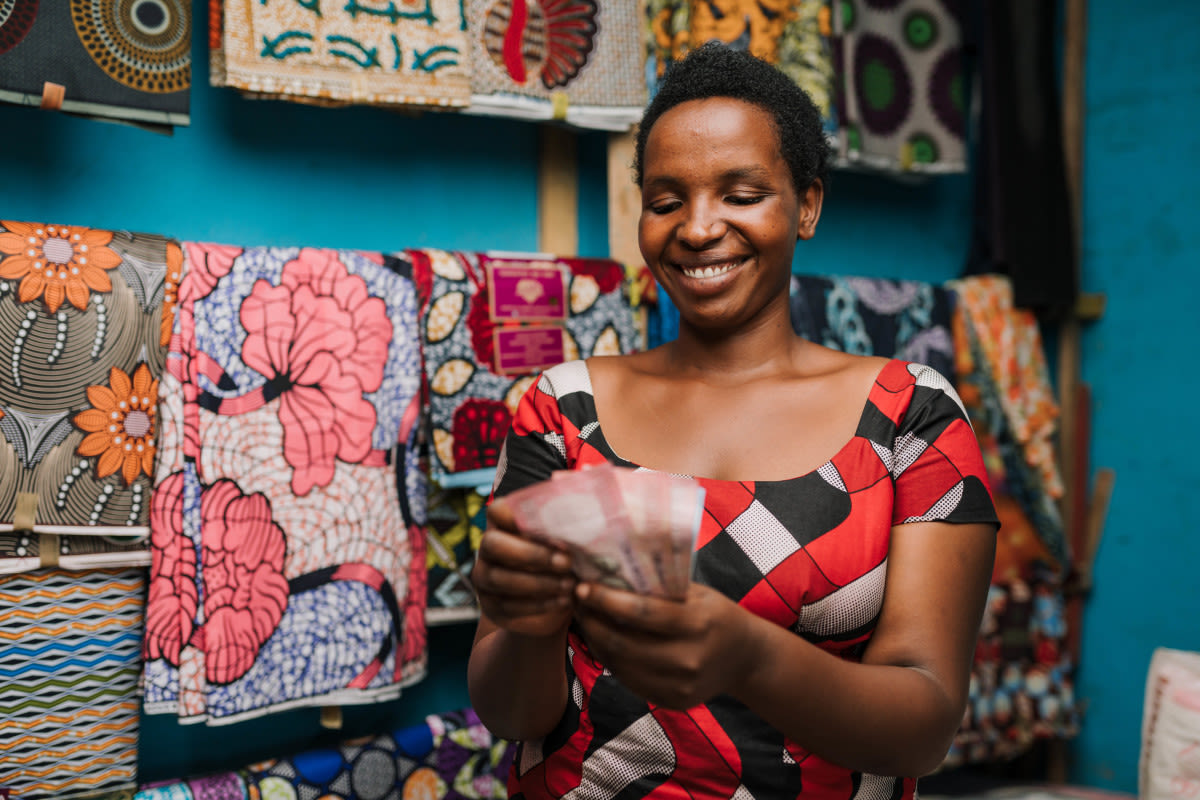
With the number of forcibly displaced people around the world now standing at over 100 million (UNHCR) for the first time on record, this time of reflection and awareness is a pertinent time for us to recognise the many barriers refugees face in having to move to a new country, and to admire their resilience in rebuilding their lives despite the challenges they face.
This resilience is something we have seen again and again at Comic Relief through our Branching Out: Financial Inclusion at the Margins programme. Funded by our partnership with Jersey Overseas Aid (JOA), the five-year programme has helped support some of the two billion people who lack access to formal financial services; approximately 90% of whom live in developing countries.
Focusing on people living in Zambia, Rwanda and Sierra Leone, the partnership is founded on a commitment to ‘bank the unbanked’. By increasing refugees’ digital and financial literacy, the project ultimately works towards reducing poverty, supporting local economic development and increasing financial inclusion.
Our investments have helped 11,018 people, including 2,000 refugees, increase their savings and create greater agency and stability in their lives.
One of the organisations supported by the Branching Out programme is the United Nations Capital Development Fund (UNCDF) Rwanda who have been delivering basic financial services and provide financial and digital education to support refugees living in Rwanda including Mahama Refugee Camp - the largest refugee camp in the country.
UNCDF began work in the camp in 2019, and have seen great success with their savings groups. Members regularly contribute a fixed amount of money to a shared pot and as their savings grow, they can take out small loans and pay the money back with interest, further growing the pot and increasing financial resilience amongst the wider group.
One of the women who has used this savings group to successfully grow her business is 29-year-old Sifa, who moved to Mahama in 2016 after fleeing the DRC. She has been with the UNCDF programme since 2018, when Umutanguha Finance Company (UFC) staff reached out to her and trained her on business, saving, and investing.
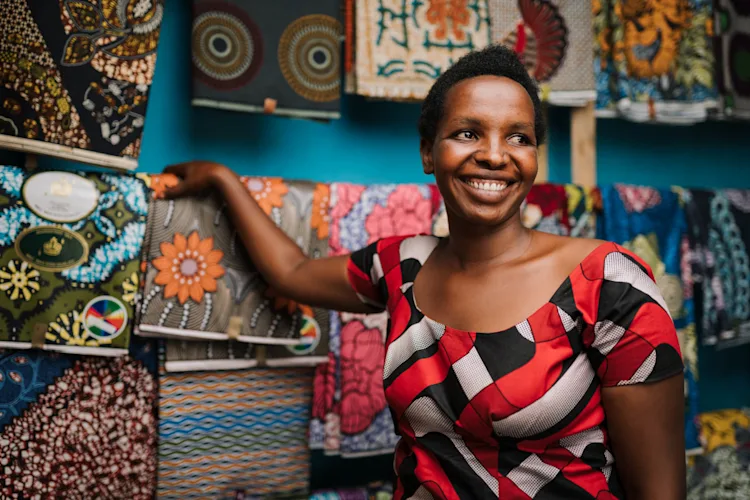
She recalls: “I started to do business because of the difficult life in the refugee camp. When I saw how life was challenging, I said that if I continue to do nothing, in the end I will suffer more.
“I started selling tomatoes on the street. I also had to sell vegetables. The business was not very successful, but in the meantime, I had saved money with the savings group.
“I took the money and immediately went into the children's clothing business. I was selling caguwa [used clothes]. So, when I made money, I immediately expanded my business.
“In the early days of my business expansion, UFC taught me about the benefits of working with financial Institutions because at that time we could not deposit in the bank.
“They taught us how to do business, and they taught us how saving even one coin can make you grow your business.”
Refugees are often refused bank accounts due to a lack of identification papers, but UFC helps them to access financial services using the resources they have such as their refugee registration documents.
“In business, one should not have fear. Some people are scared. But if they understand how poverty bites, they can’t be afraid to do business.”
Sifa, who lives in Mahama with her husband and their three-year-old son, adds: “The UFC program has been a great help to us. I used to sell clothes known as caguwa (imported used clothes), but with my loan I immediately started selling Kitenge (a single piece of cloth wrapped round the hips typically worn as a skirt by women in Burundi, Rwanda and DRC), and I was able to repay the loan that the Bank had given me. I paid back well.”
She added: “In business, one should not have fear. Some people are scared. But if they understand how poverty bites, they can’t be afraid to do business.”
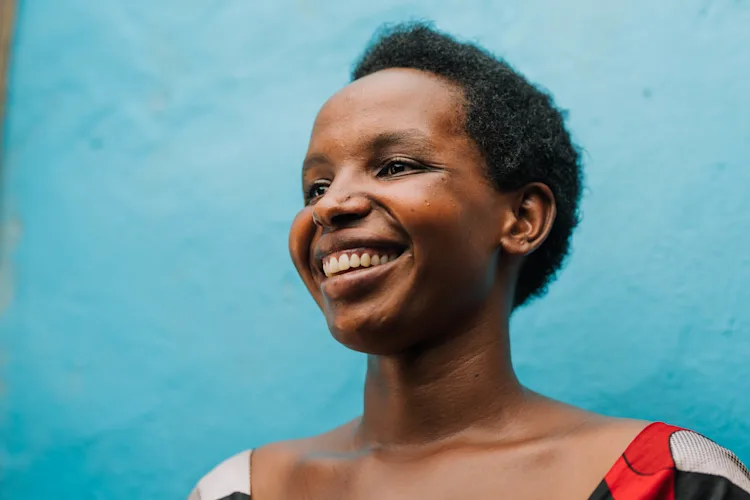
We know that financial inclusion changes people’s lives. When people have access to useful and affordable financial products and services that meet their needs - including transactions, payments, savings, credit and insurance - everyone benefits. People are able to save more; spend more on health care and education; invest in their businesses and enterprises which in turn have more opportunity to thrive.
Emmanuel, who leads the UFC in Mahama camp as their project coordinator, sums it up nicely.
He says: “Because refugees have little or no means, some lack the basic skills in creating and managing financial resources. But we make them feel there is a way to save, invest, and run a business that would lift them out of poverty.”
Comic Relief and JOA’s partnership has helped support eight organizations through 19 different grants in Zambia, Rwanda and Sierra Leone toward establishing financial inclusion. Since 2018, the investments have helped 11,018 people, including 2,000 refugees, increase their savings and create greater stability in their lives. The partnership has also created savings groups to support over 124,00 people with the means to save and borrow money, and begin planning for the future.
Find out more about Comic Relief’s partnership with Jersey Overseas Aid here.
